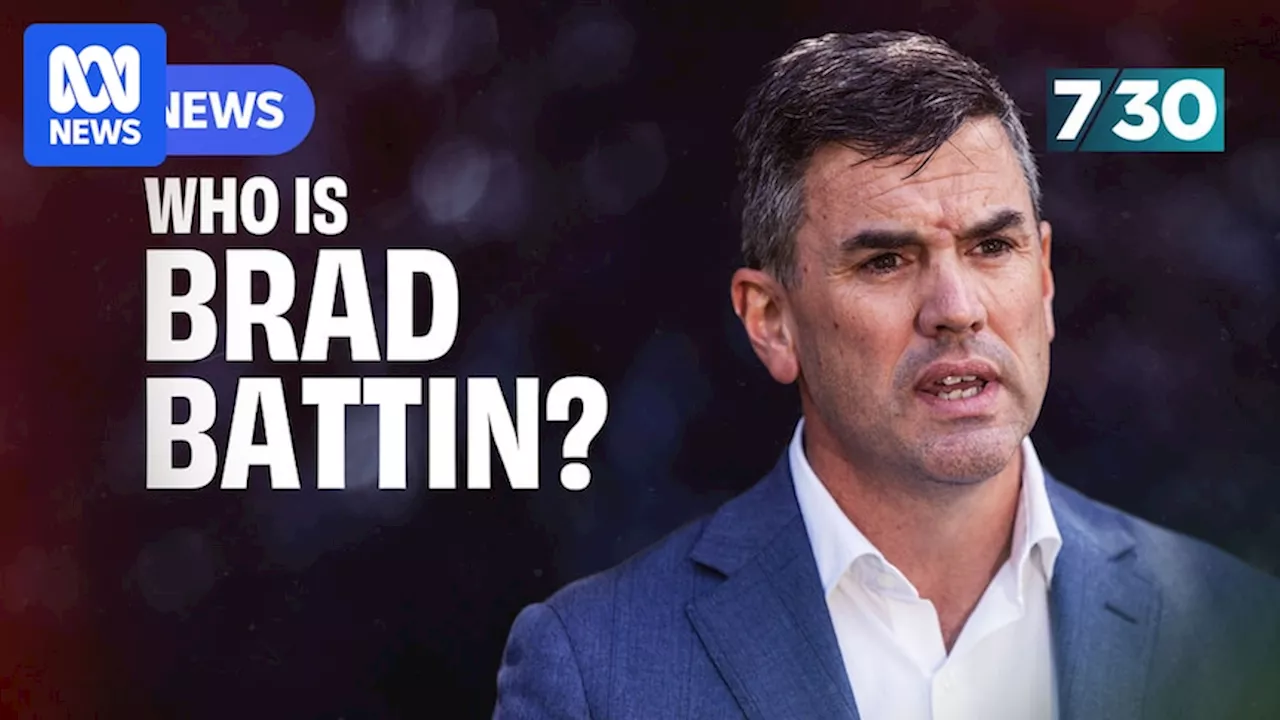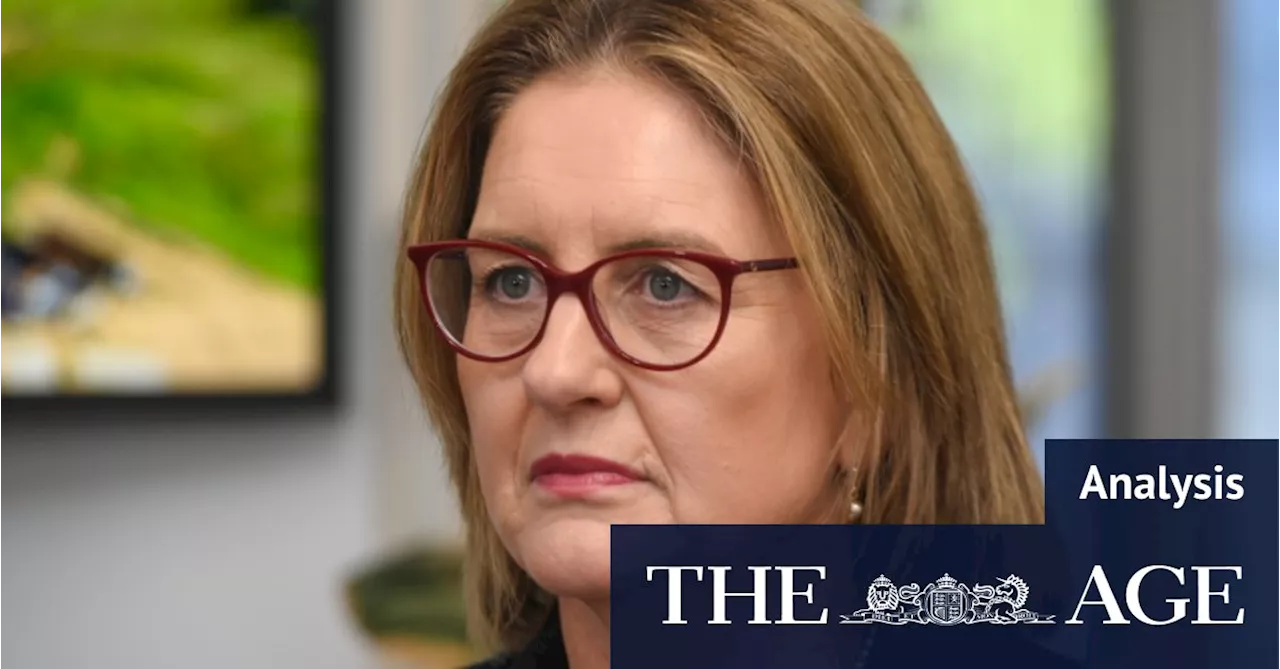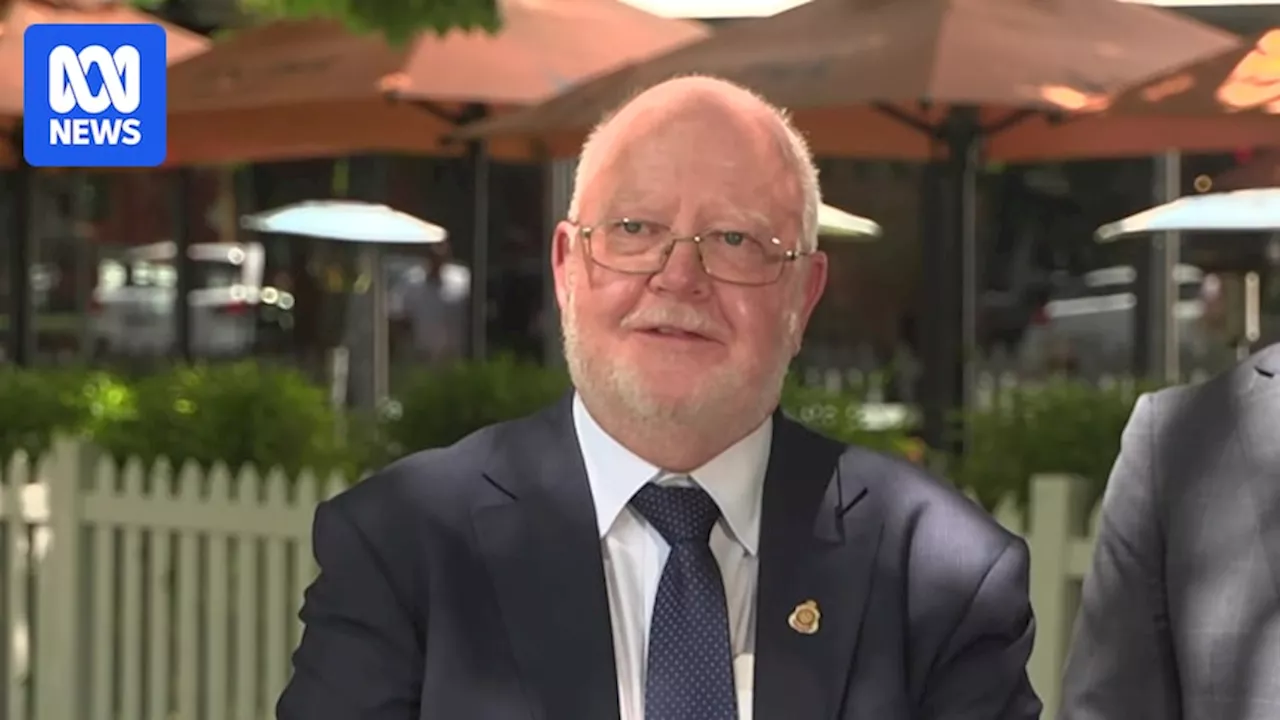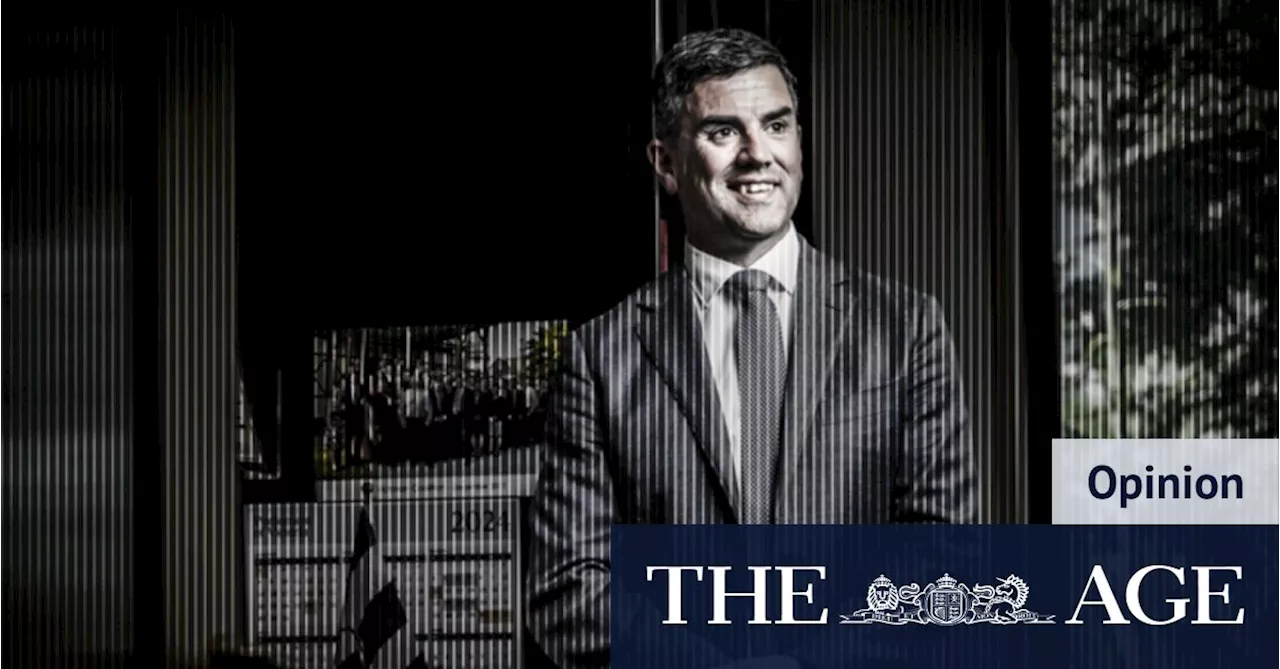This article explores the precarious position of Brad Battin, the newly elected leader of the Victorian Liberal Party, as he prepares to potentially lead the state in the next election. It analyzes the internal divisions within the Liberal Party, the challenges posed by a deeply unpopular Labor government, and the lack of clarity surrounding Battin's policy positions.
In the days before and after Christmas, as Victorian Liberal Party members in the state parliament were dividing up the spoils of opposition, voters were largely forgotten. The idea that John Pesutto , after a difficult two years leading a party battered at the last state election, had somehow positioned his party for victory in the next election, did little to deter those with ambitions of their own. If anything, it sharpened their aims.
As one party insider observed this week, there are Liberal MPs who view Pesutto's electoral progress as all the more reason to remove him quickly. Michael O'Brien, the last Liberal leader deposed just as polls suggested voters were warming to him, could attest to this.The question of whether Brad Battin, a political figure known for two previous attempts to become opposition leader, would boost the party's standing with voters, was not a primary concern. In numerous conversations I had with Liberal MPs during those days, as a new political editor trying to understand the personalities, loyalties, and grudges that shaped their behavior, hardly anyone discussed whether a change in leadership would help or hinder their prospects of forming government after the next election. What might seem like an essential political motivation – maximizing the party's appeal to the electorate – appeared entirely absent from their calculations. Perhaps, having spent only four years in government this century, the notion of actually governing the state had become too distant to seriously contemplate. Like long-term inmates plotting another jailbreak, the Liberals were more focused on the power dynamics within their own ranks than on gaining an opportunity to govern.The poll presented a grim picture for Jacinta Allan and those in charge of the Victorian ALP. Their party's primary support of 22 percent, a figure previously unimaginable for Labor in this state or any other, suggests that the connection between voters and this decade-old, debt-ridden government has finally snapped. If he accepts what this poll is telling him, and anyone else who follows Victorian politics, he knows he has less than two years to transform one of Australia's most dysfunctional political organizations into a body capable of governing a state of nearly 7 million people. Regardless of whether the Coalition is ready to take government, it appears as though government is coming to them. In November next year, Battin could well find himself in the position of the dog who catches the car. This is a confronting prospect, not only for a state which until recently was considered an unassailable Labor stronghold, but for an opposition party which stands to inherit all of Victoria's problems and, so far, has offered few fully formed ideas about how to solve any of them. He has painted a broad outline of his political persona – a suburban everyman who seeks to reduce crime, lower spending, and make Melbourne a more livable place for families burdened by mortgages. However, he is yet to delve into the complexities, convictions, and contradictions that complete any political picture.The government's latest budget update reveals state debt exceeding $187 billion in June 2028, on a trajectory towards an unknown peak. Battin promises to ease the tax burden on Victorians, but how does he intend to make a dent in the debt if he reduces revenue from an already limited base? He pledges to cut spending, but which government programs, projects, or services is he willing to eliminate, and what does he intend to preserve? Battin has described this year's federal election as a referendum on nuclear power but has offered no indication of his stance, whether he supports or opposes it. He cannot remain neutral on such a divisive issue. Peter Dutton's plan to transform the coal-fired Loy Yang power station near Traralgon into a small-scale nuclear reactor would require Victoria to lift its moratorium on nuclear power. Like Dutton, Battin is a former policeman whose natural political domain is law and order. However, he is not a hardcore zero-tolerance advocate. He wants to strengthen bail laws and sentencing for certain crimes and remove more edged weapons from the streets. He also voted against raising the age of criminal responsibility. Battin is not driven by gender wars, but within his party room, there are MPs who are. Would a Battin government, like Queensland, review paediatric treatments for gender dysphoria? He is reluctant to answer. Politics abhors a vacuum. So do gender-critical MPs. Whatever contradictions exist within Battin, he will be ruthlessly exploited by a Labor machine which, in contrast to the Liberals, is hardwired to prioritize winning elections above all else. For the Victorian Liberal Party, winning has become an abstract concept
VICTORIAN POLITICS BRAD BATTIN LABOR PARTY JOHN PESUTTO NUCLEAR POWER CRIME POLICY BUDGET DEFICIT ELECTION
Australia Latest News, Australia Headlines
Similar News:You can also read news stories similar to this one that we have collected from other news sources.
 Battin must prove his leadership abilities in disunited Liberal PartyBy the time of the next election in late 2026, the Coalition will have been in opposition in Victoria for 12 years. This creates challenges and opportunities for Brad Battin.
Battin must prove his leadership abilities in disunited Liberal PartyBy the time of the next election in late 2026, the Coalition will have been in opposition in Victoria for 12 years. This creates challenges and opportunities for Brad Battin.
Read more »
 The Victorian Liberal Party pins its hopes on new leader, Brad BattinSarah Ferguson presents Australia's premier daily current affairs program, delivering agenda-setting public affairs journalism and interviews that hold the powerful to account. Plus political analysis from Laura Tingle.
The Victorian Liberal Party pins its hopes on new leader, Brad BattinSarah Ferguson presents Australia's premier daily current affairs program, delivering agenda-setting public affairs journalism and interviews that hold the powerful to account. Plus political analysis from Laura Tingle.
Read more »
 Victoria's Labor Party Faces Political Crisis as Poll Shows Premier Daniel Andrews Losing SupportA new poll has sent shockwaves through Victoria's Labor Party, revealing a dramatic decline in support for Premier Daniel Andrews. The results suggest that the party, which has held power in the state for almost two decades, is now facing a serious threat from the opposition Liberal Party. The poll highlights voter dissatisfaction with the cost of living, crime, and debt, as well as a preference for the Liberal Party's new leader, Brad Battin.
Victoria's Labor Party Faces Political Crisis as Poll Shows Premier Daniel Andrews Losing SupportA new poll has sent shockwaves through Victoria's Labor Party, revealing a dramatic decline in support for Premier Daniel Andrews. The results suggest that the party, which has held power in the state for almost two decades, is now facing a serious threat from the opposition Liberal Party. The poll highlights voter dissatisfaction with the cost of living, crime, and debt, as well as a preference for the Liberal Party's new leader, Brad Battin.
Read more »
 Liberal Party Embraces Video on Social Media to Reach VotersThe Liberal Party of Australia is actively utilizing video content on platforms like TikTok, Instagram, and Facebook to connect with voters. The strategy involves MPs creating engaging videos that showcase their personalities and policy positions, leveraging analytics and guidance from political agencies. The party's focus on video reflects the growing dominance of this format in online communication.
Liberal Party Embraces Video on Social Media to Reach VotersThe Liberal Party of Australia is actively utilizing video content on platforms like TikTok, Instagram, and Facebook to connect with voters. The strategy involves MPs creating engaging videos that showcase their personalities and policy positions, leveraging analytics and guidance from political agencies. The party's focus on video reflects the growing dominance of this format in online communication.
Read more »
 Liberal Party Embraces Video to Engage Voters on Social MediaThe Liberal Party in Australia is using a strategic approach to dominate social media in 2025 by focusing on video content. MPs are posting engaging videos on platforms like TikTok, Instagram, and Facebook, showcasing their personalities and policy positions in an authentic way. The party is leveraging professional guidance, data analysis, and internal meetings to refine their video strategy. This shift towards video aligns with Australians' increasing reliance on digital entertainment and aims to connect with younger voters and broaden their reach.
Liberal Party Embraces Video to Engage Voters on Social MediaThe Liberal Party in Australia is using a strategic approach to dominate social media in 2025 by focusing on video content. MPs are posting engaging videos on platforms like TikTok, Instagram, and Facebook, showcasing their personalities and policy positions in an authentic way. The party is leveraging professional guidance, data analysis, and internal meetings to refine their video strategy. This shift towards video aligns with Australians' increasing reliance on digital entertainment and aims to connect with younger voters and broaden their reach.
Read more »
 Liberal Party Announces Steve Murphy as Candidate for Werribee By-ElectionThe Liberal Party has selected real estate agent Steve Murphy as their candidate for the upcoming by-election in the Victorian seat of Werribee. Murphy will face competition from Labor's John Lister, a high school teacher, and the Greens' Rifai Raheem. The by-election was triggered by the resignation of former Victorian treasurer Tim Pallas. Murphy, a former policeman and army trooper, highlighted cost of living, infrastructure, and crime as key issues he would address if elected.
Liberal Party Announces Steve Murphy as Candidate for Werribee By-ElectionThe Liberal Party has selected real estate agent Steve Murphy as their candidate for the upcoming by-election in the Victorian seat of Werribee. Murphy will face competition from Labor's John Lister, a high school teacher, and the Greens' Rifai Raheem. The by-election was triggered by the resignation of former Victorian treasurer Tim Pallas. Murphy, a former policeman and army trooper, highlighted cost of living, infrastructure, and crime as key issues he would address if elected.
Read more »
